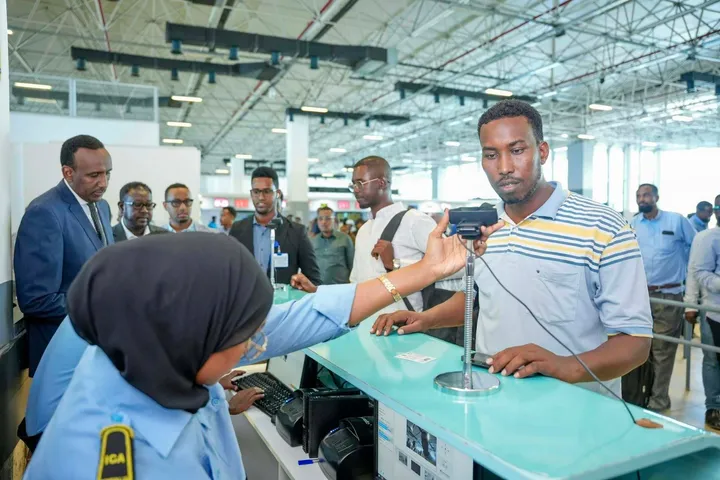By Zanji Sinkala
Fredrick Mutale, 21, left school in eighth grade to work in a manganese mine as a batcher.
He was delighted to finally have a stable source of income to help his family pay the bills, little knowing that his chosen livelihood would come at a heavy price.
Fredrick's dream of building a future turned into a nightmare in April 2022 when he developed what then appeared to be a strange disease.
"I was working at the mine when, all of a sudden, I started feeling sick and weak in my legs," he recounts to TRT Afrika, struggling to speak.
Close to 20 miners at the Indian-owned Southern African Ferro Alloys Limited (SAFAL) unit in Central Zambia's Serenje have been diagnosed with a debilitating neurological condition that shares many of the symptoms of Parkinson's disease.
Known as "manganese disease", this condition is apparently caused by long-term exposure to high levels of manganese, a heavy metal that is a common component of the ore mined by SAFAL.
The symptoms include trembling, stiffness, slow motor movement and potentially severe depression, anxiety and hostility.
Optimism dashed
Apart from contracting the disease, the affected miners have lost their jobs and are since unable to support their families.
Last year, SAFAL stopped making manganese balls for smelting and started using manganese powder instead due to lack of cement stock.
Unknown to the residents of Serenje, it was a change that would soon undo the optimism with which SAFAL's arrival in the remote Zambian town had been greeted.
The company's manganese mine promised much-needed jobs and economic development for the impoverished region.
That promise has come at a steep cost. "Manganese powder produces a lot of dust from the batching process, up to the furnace.
There is also a lot of smoke. That is how the workers started developing a strange disease, and the numbers started increasing," a former employee explains. More complaints about SAFAL’s poor working conditions and life-threatening pollution continue to emerge.
The company is said to have introduced a new type of manganese powder towards the end of 2021 and beginning of 2022, which contained manganese of high quality.
But due to an increase in the number of workers falling ill, production of the powder was halted in October 2022, according to information from former employees.
Speech impaired
They blame SAFAL for the manganese disease that has plagued some of them, claiming the company did not supply workers with suitable personal protective equipment (PPE) between 2014 and 2021.
The workers were given disposable and washable masks instead. SAFAL adamantly maintains that the mine is not the cause of the manganese disease, leaving the families of victims seething from this denial.
In an interview, plant manager Bijeesh Mangara Vijayan said the company was carrying out investigations with the help of Zambia's University Teaching Hospital, to establish what the workers were suffering from.
"We need to know if they started working with the strange disease or they got the disease while working for the company," he says.
Zambia's minister of health has admitted that the ministry is aware of the health conditions caused by SAFAL’s mining.
A statement read on her behalf in the national assembly on March 9 this year said that the government of Zambia was alerted on the SAFAL ordeal months ago.
"In September last year, the government, through my ministry, responded to an alert concerning employees of SAFAL who presented loss of balance, impaired speech and dropping of saliva from the mouth, among others," the statement read.
"The Occupational Health Safety Institute under the ministry of labour and social securities was notified and blood samples were taken from 281 employees of SAFAL to determine the cause of what contributed to the problem.
Artisanal miners as labour supplement
The results reveal that 271, which is 96.4 percent, have blood levels of manganese above the normal level."
The health minister further said investigations were underway, and appropriate action would only be taken on SAFAL after they were concluded.
While manganese mining in Zambia is a relatively new industry, the country is one of the largest producers of manganese ore in Africa, with estimates suggesting that it has reserves of up to 60 million tonnes of the mineral.
In Zambia, multinational companies have been using artisanal miners as a way to supplement their labor force or to source minerals from smaller, informal mines.
This has led to the development of various forms of partnership between mining companies and artisanal miners, including joint ventures, contract mining arrangements, and informal agreements.
However, despite the potential benefits of these partnerships, there have been concerns about the social and environmental impact of artisanal mining in Zambia.
Artisanal miners often work in hazardous conditions, with little regard for safety or environmental regulations, and are often exposed to health risks from exposure to toxic chemicals and heavy metals.























